Agda Core
Where do we come from and where do we go?
Jesper Cockx
13 October 2020
January 2020
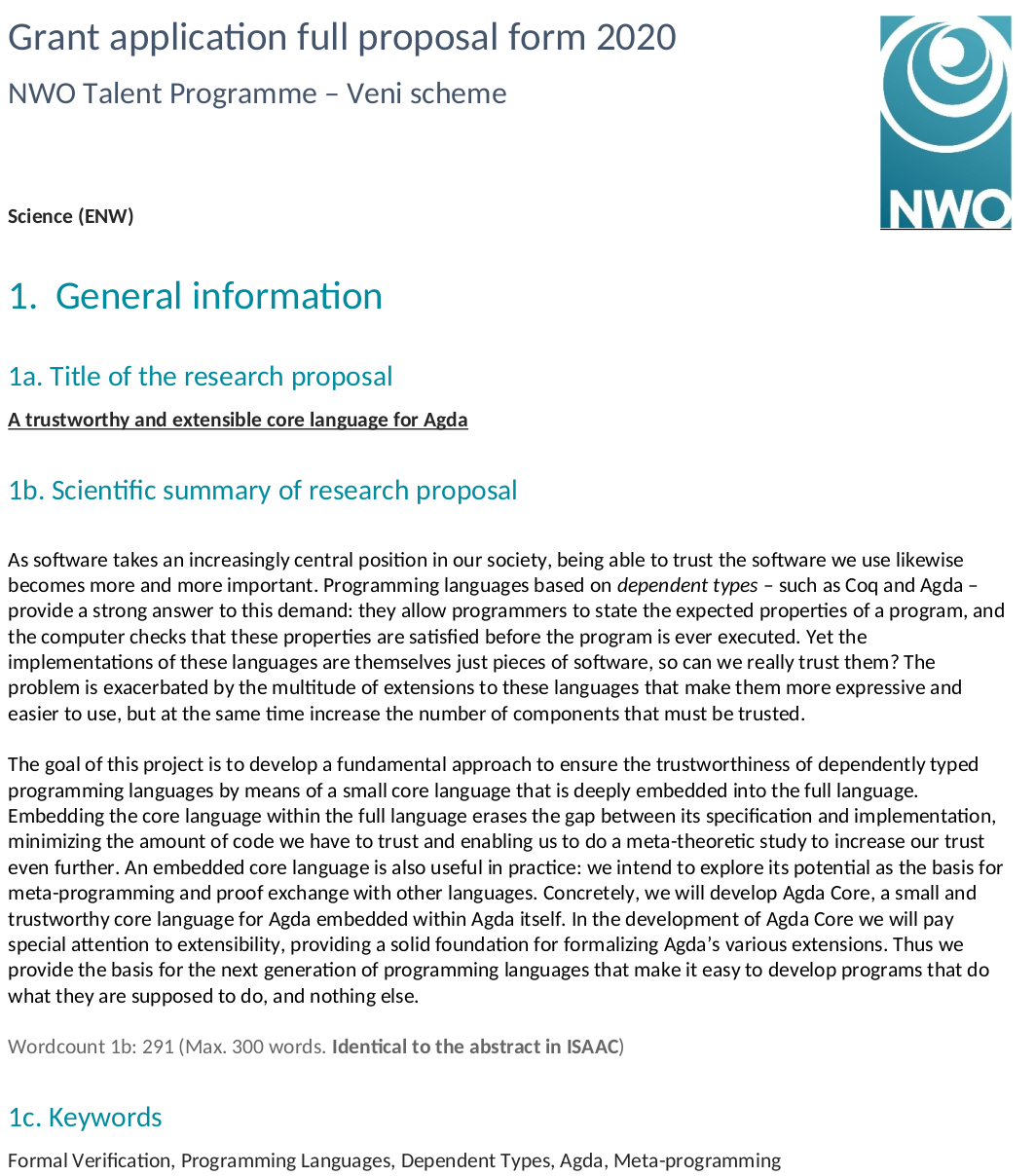
September 2020

Currently

Core language, wa’s da?
A question of trust
Agda’s type checker checks correctness of our programs and proofs…
…but who checks the checker?
Criteria of a core language
- Small
- Formally defined
- Most/all of surface language can be translated
- Independent checker
- Unreadable syntax (?)
Reasons to want a core language
- Minimizing trusted code base
- Enabling theoretical study
- Intermediate language for compiler optimization
- As an interface for reflection
- Interoperability with other languages
Reasons to NOT want a core language
- Makes it harder to implement certain new features
- Errors in core language can be incomprehensible
- Performance overhead of encoding vs direct implementation
Where do we come from?
Current syntax representations:
- Internal syntax
- Reflected syntax
- Treeless syntax
Internal syntax
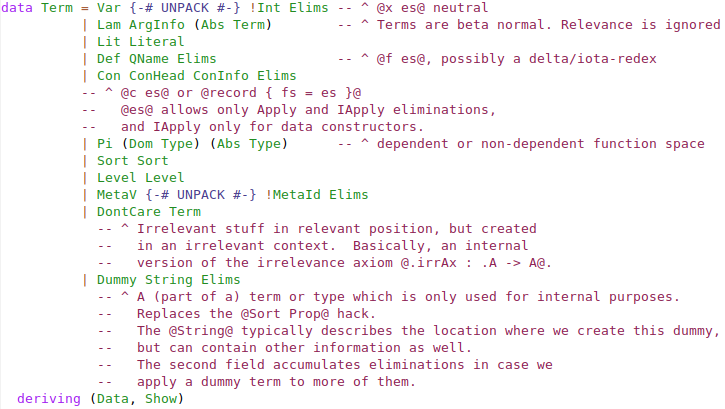
- internal double-checker
CheckInternal!
BUT: does not cover datatypes and pattern matching
Reflected syntax
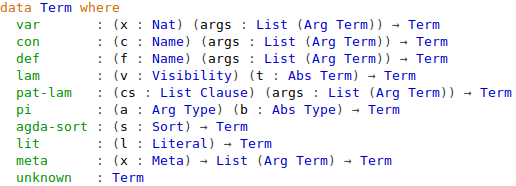
- embedded in Agda!
BUT: no formally defined type system
Treeless syntax
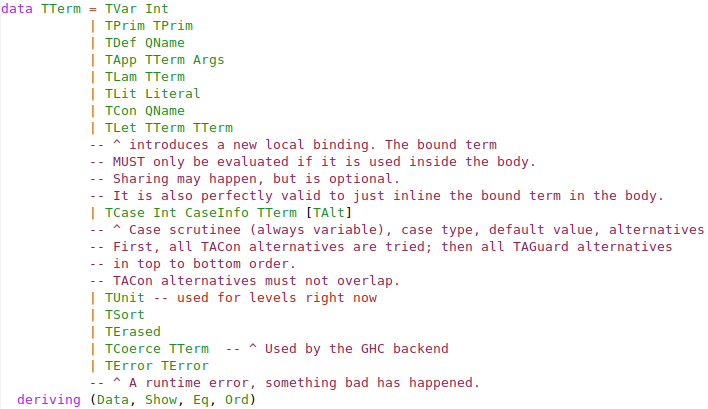
Nice for doing optimizations
BUT: impossible to implement a type checker
The Agda spec
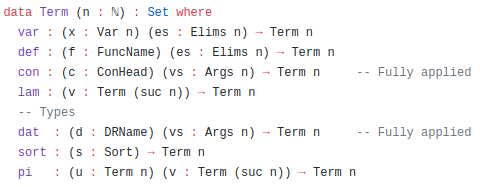
MetaCoq
- A formalization of Coq in Coq
- Quoting library Template-Coq
- Standard metatheory for PCuIC
MetaCoq SafeCheck, a safe-by-construction typechecker- Verified Erasure to untyped lambda calculus
- No good story yet for termination, eta-equality, and irrelevance
PiSigma: dependent types without the sugar (2010)
- A small core language designed for Agda
- Boxed terms to control unfolding
- Potential issues
Type : Type- No support for general indexed datatypes (no propositional equality!)
- Very nontrivial notion of alpha-equality
Where do we go?
Agda Core
My goal: develop a core language for Agda that:
- Is embedded in Agda itself
- Has a correct-by-construction typechecker
- Can be connected to the main typechecker
- Covers all basic features of Agda:
- Inductive datatypes and records
- Dependent pattern matching
- Eta equality for functions and records
- Universe levels
- Can easily be extended with new features
Features that could be added later
- Module system
- Termination checking / sized types
- Coinduction
- Irrelevance
- Cubical primitives
- Rewrite rules
Challenge 1: level of encoding
The more features can be encoded, the smaller the core language can be…
… but the more complex the elaboration and the harder to understand the core code!
- Inductive families: direct support or encoding?
- Pattern matching: clauses/case trees/eliminators?
- Implicit or explicit conversion rule?
Challenge 2: syntax representation
- Spine form? Do we allow let-bindings?
- Case trees as part of syntax?
- Substitution: explicit or implicit?
- Scoping and typing: intrinsic vs extrinsic vs mixed?
Challenge 3: extensibility
How to ensure new features can be added without rewriting Agda Core from scratch?
Let’s go on to the core!

References
- Agda spec: https://github.com/agda/agda-spec
- MetaCoq: https://metacoq.github.io/
- PiSigma: https://www.cs.nott.ac.uk/~psztxa/publ/pisigma-new.pdf